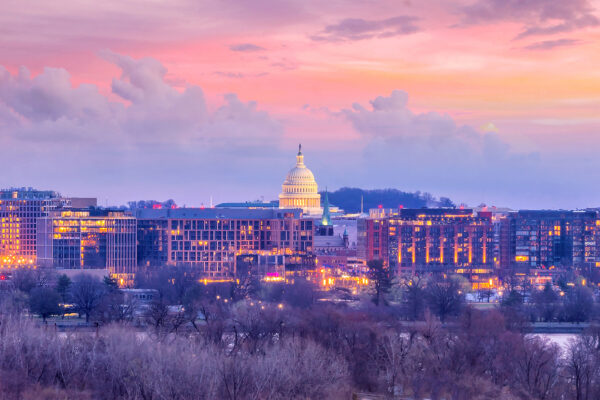
Democrats in the United States were hoping for more than a simple victory over Donald Trump. Polls had suggested they could win in a landslide.
That didn’t happen. Joe Biden decisively beat the president by more than six million votes, or a margin of 4 points, but Democrats lost seats in the House of Representatives and failed to take the majority from Republicans in the Senate.
Democrats also lost seats in state houses, giving Republicans control of redistricting in most states; a power they could use to make it even more difficult for Democrats to win a majority of the seats even when they win a majority of the votes. (Districts are withdrawn every ten years following the Census.)
Recriminations
Moderate Democrats argue left-wing calls to defund the police and nationalize health insurance scared away centrist voters. Progressives argue the party didn’t do enough to reach out to voters in person.
Both are right.
Ticket-splitting (voting for a Democratic president but a Republican senator, for example) was becoming rare, but center-right antipathy for Trump revived it. Middle-income voters in the suburbs — fiscally conservative but concerned about climate change and openminded about gay rights — have been trending Democratic.
Flirting with socialism — Biden’s rival in the Democratic primaries, Bernie Sanders, called himself a “democratic socialist” — may not have cost Democrats voters in Brooklyn and Portland, Oregon, but it did in Miami, where Hispanics of Cuban, Nicaraguan and Venezuelan descent know the consequences of socialism first- or secondhand. Biden lost Florida by 3.3 points. Democrats lost two House seats in Florida and five seats in the state legislature.
Democrats didn’t knock on doors this year because of the coronavirus. It was the responsible thing to do, but it probably cost them voters. Trump supporters in Texas did organize, and it’s probably how the president won expectedly high support from Latinos in areas on the Mexican border.
Lesser of evils
Alexandria Ocasio-Cortez, a leading light of the progressive left, once said,
In any other country, Joe Biden and I would not be in the same party, but in America, we are.
Ocasio-Cortez, to her credit, did campaign for Biden, as did Sanders. Both understand that in a two-party system, you sometimes have to choose the lesser of two evils.
But 250 million eligible voters deserve a better choice. Just like socialists shouldn’t need to share a party with center-left liberals, center-right, status quo-oriented conservatives shouldn’t be in the same party as Trump’ authoritarians. Libertarians shouldn’t have to decide every two years if they care more about economic or personal freedom.
Five parties
Imagine if America had five parties:
- A Trumpist nationalist party on the far right.
- A Reaganite conservative party on the center-right.
- A culturally liberal and globalist “Acela Corridor” party, in the mold of former New York mayor Michael Bloomberg, in the center.
- A Labor Party, in the mold of former president Barack Obama, on the center-left.
- A Green party on the far left.
Echelon Insights, an opinion research firm, found that an American Labor Party would place first with 28 percent support. The two parties of the right would split 40 percent. The Acela Corridor party would win 12 percent and the Greens 10 percent.
Such a constellation would open up new possibilities. Labor, Acela and the Greens could pass meaningful climate legislation and gun reform. Labor, Acela and the Reaganite right could probably compromise on simplifying America’s convoluted tax code. The Trumpist right could possibly partner with Labor and the Greens on trade.
Trust
Multiparty democracy would restore Congress’ proper role as the first branch of government, and it could restore Americans’ faith in politics. Voters in multiparty democracies tend to have more trust in their political systems — and each other. They don’t have to fear that their interests will be ignored for four years, because they know parties will meet in the middle.
A two-party system, by contrast, encourages parties to radicalize their supporters and conditions voters to think there are only two sides to any given issue.
How to do it
Nothing in the Constitution requires a two-party system. States can decide their own rules and Congress has the power to override them; a power it has used in the past to enforce the very plurality-winner single-member districts that keep the Democratic-Republican duopoly in place. If the country wanted to, it could move to a system of proportional representation in the next election. All it would take is an act of Congress.
Options include multi-member congressional districts, ranked-choice voting and French-style runoffs. All would allow third parties to thrive without playing spoiler and encourage politicians to appeal to the center rather than to the extremes.
